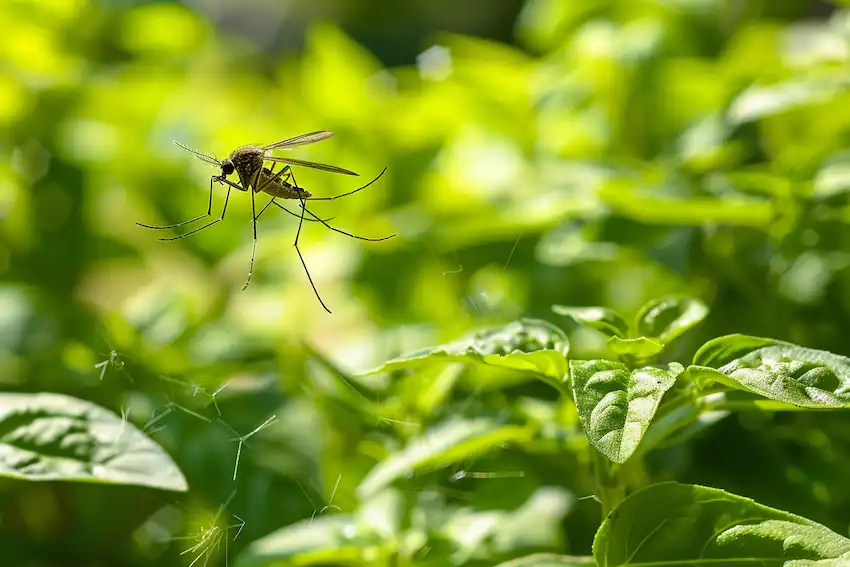Natural Pest Control: 7 Herbs to Repel Garden Pests
Gardening is a rewarding hobby, but pests can sometimes pose a challenge. Fortunately, nature provides its own solutions. By incorporating certain herbs into your garden, you can naturally repel pests while enhancing the beauty and productivity of your space. Here’s a look at seven herbs known for their pest-repelling properties and tips for using them effectively.
1. Basil
Pest Repellent Properties:
- Repels: Flies, mosquitoes
- Usage: Plant basil near your vegetable patch, especially around tomatoes, which are prone to insect infestations. The strong scent of basil deters various pests and can help protect more vulnerable plants.
Planting Tips:
- Space plants about 12 inches apart.
- Use basil in companion planting to maximize its pest-repelling benefits.
2. Lavender
Pest Repellent Properties:
- Repels: Moths, fleas, flies
- Usage: Place pots of lavender around your garden borders and patio areas. Lavender’s soothing aroma creates a natural barrier against pests while adding a touch of color and fragrance to your garden.
Planting Tips:
- Plant in well-drained soil with plenty of sunlight.
- Space lavender plants about 24 inches apart.
3. Lemongrass
Pest Repellent Properties:
- Repels: Mosquitoes (thanks to citronella)
- Usage: Plant lemongrass around garden edges or seating areas to ward off mosquitoes and enhance your outdoor living spaces.
Planting Tips:
- Grow in full sun with ample space, as lemongrass can spread.
- Water regularly but ensure good drainage.
4. Mint
Pest Repellent Properties:
- Repels: Aphids, cabbage moths, flea beetles
- Usage: Grow mint in pots to prevent it from spreading uncontrollably. Place pots near vulnerable plants to repel a variety of pests.
Planting Tips:
- Mint can be invasive, so confine it to pots or raised beds.
- Keep mint well-trimmed to prevent it from overtaking other plants.
5. Rosemary
Pest Repellent Properties:
- Repels: Carrot flies, bean beetles
- Usage: Plant rosemary in containers or directly in your garden to protect beans, broccoli, carrots, and sage. The strong scent of rosemary repels many common garden pests.
Planting Tips:
- Grow in well-drained soil and full sunlight.
- Space plants about 18 inches apart.
6. Chives
Pest Repellent Properties:
- Repels: Aphids, beetles
- Usage: Plant chives among roses and fruit-bearing trees to prevent infestations. Chives not only repel pests but also enhance the flavor of nearby vegetables.
Planting Tips:
- Space chive plants about 6-8 inches apart.
- Harvest regularly to encourage continuous growth.
7. Thyme
Pest Repellent Properties:
- Repels: Cabbage worms, whiteflies
- Usage: Plant thyme among cabbage, broccoli, and cauliflower to deter these pests. Thyme’s strong aroma acts as a natural repellent.
Planting Tips:
- Grow in well-drained soil with full sun exposure.
- Space thyme plants about 12 inches apart.
Implementing Herbs for Pest Control
Integration with Other Plants:
- Companion Planting: Strategically place these herbs among vegetables and flowers to enhance their pest-repelling properties. The diversity of plants helps create a more balanced garden ecosystem.
Regular Maintenance:
- Health: Keep your herbs healthy and well-trimmed to ensure they produce the potent scents necessary for effective pest control.
- Care: Regularly water and feed your herbs to maintain their vitality and effectiveness.
Additional Pest Control Tips
Dish Soap Spray:
- Preparation: Mix a few drops of dish soap with water in a spray bottle.
- Usage: Spray lightly on plants to deter pests. The soap disrupts the pests’ outer layers and acts as a gentle, organic pest control solution.
Physical Barriers:
- Use Floating Row Covers: Protect vulnerable crops during peak pest seasons to create a barrier between pests and plants.
Manual Removal:
- Inspection: Regularly inspect plants and manually remove pests to keep populations in check and minimize damage.
By incorporating these seven herbs into your garden, you can reduce your reliance on chemical pesticides and create a more sustainable, enjoyable gardening environment. Each herb offers both functional pest control benefits and aesthetic or culinary enhancements, making them valuable additions to any garden. Embrace companion planting and natural pest control to improve both the health and yield of your garden.

